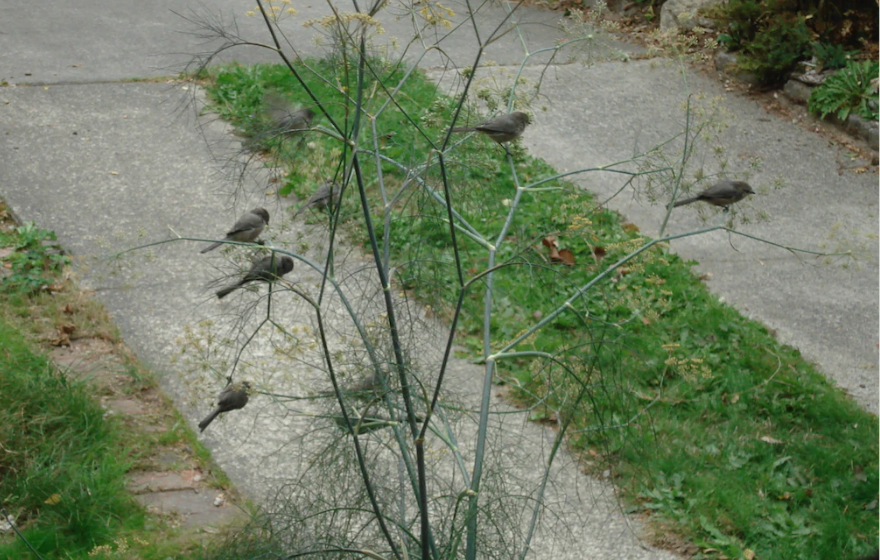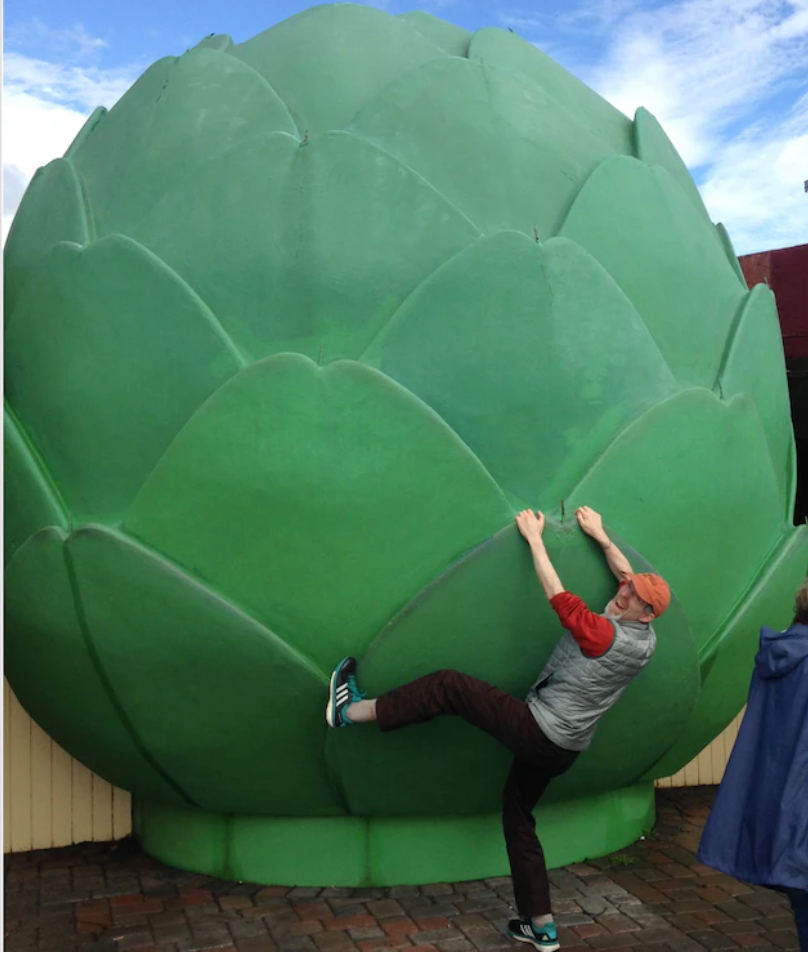Recently while biking on the Burke Gilman Trail near Gas Works Park, I was struck (not physically mind you, in case you worried that I suffered a shrubbery injury) by the lush fennel along the trail. In some places, the plants formed great thickets that were dense enough to preclude the growth of another non-native invasive, Himalayan blackberry. (Actually a native of Western Europe, these blackberries arrived in our part of the world because of horticulturalist Luther Burbank.) If fennel is that aggressive, and able to replace blackberries, that could be an intriguing development, perhaps inspiring more people to use this fragrant plant. 
Such growth though is also problematic. Common fennel, or Foeniculum vulgare, for the scientifically inclined, has been classified by Washington State as a Noxious Weed. The problem, as illustrated on the Burke Gilman, is that non-native fennel can outcompete and crowd out native plants. Less problematic and rather impressive is the way fennel appears to kick some blackberry butt. Which exact fennel subspecies is spreading, and whether it actually does spread, is a bit controversial but if you have ever planted fennel or seen it appear and rapidly take over an area, you know that at least some varieties are quite capable of proliferating like rabbits (so to speak).

Native to the Mediterranean and temperature parts of Africa, fennel has spread globally with a host of names, such as mieloi (Basque), bad (Hindi), phase (Lao), phak chi (Thai), and finnuchio (Italian). Tall plants can easily be more than six feet with anise-scented and -flavored foliage, and bright golden flowers in terminal umbels (revealing their carrot family affinity). Over the centuries people have found many medicinal uses for the plants, including abdominal pains, antiemetic, aperitif, arthritis, cancer, colic in children, conjunctivitis, constipation, depurative, diarrhea, diuresis, emmenagogue, fever, flatulence, gastralgia, gastritis, insomnia, irritable colon, kidney ailments, laxative, liver pain, mosquitocidal, mouth ulcer, and stomach ache, as well as improving the milk of breastfeeding mothers, removing any foul smell of the mouth, and coloring textiles. Why aren’t more of us eating fennel all the time? It’s clearly the wonder plant that could save us.
Fennel isn’t the lone Mediterranean plant that seems to be proliferating in Seattle. Artichokes are everywhere. I don’t know if planting them is this year’s fad or I just happened to notice their lovely purple spikiness more often. With climate change perhaps Seattle is becoming more hospitable to them, though I don’t think any will get as big as this one I saw down in California. But we can dream, especially if one have access to large vats of butter. YUM!

Word of the Week – Mosquitocidal – An agent employed to kill mosquitoes. Mosquito comes from the Spanish, which seems to derive from the Latin musca, in reference to fly. (One origin story for the name for Moab, Utah, comes from the Ute word Moapa, meaning mosquito water.) Given the way English has so many letters with many sounds, it’s not surprising that mosquito has perplexed spellers for centuries. Examples include muskitoes, musketas, mosqueta, muskeito, musqueetoes, muscato, moscheto, musqueto, and moschitoes. Cide comes from the Latin -cīda, meaning killer or slayer.
And, thanks to all who subscribed to my newsletter last week. I deeply appreciate your support.
To subscribe, here’s a link.
There is an alleyway just east of the Japanese Cultural and Community Center of Washington (so east of 16th and between King and Weller) that is completely filled with fennel like this. It’s behind an apartment building that is mostly filled with seniors of Asian descent, and I do wonder if it was a garden plant that went rogue. I like to see what goes wild in alleyways.